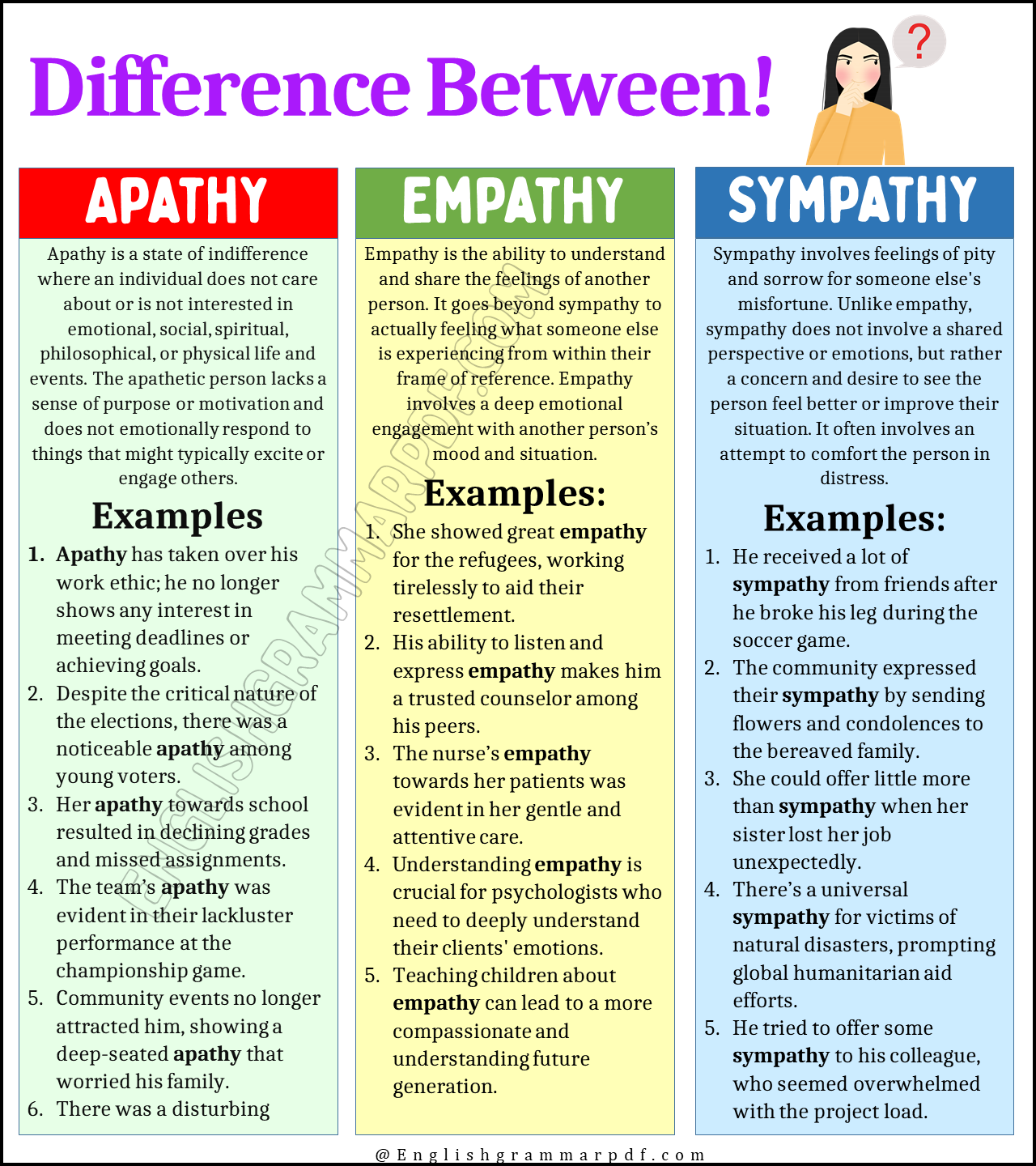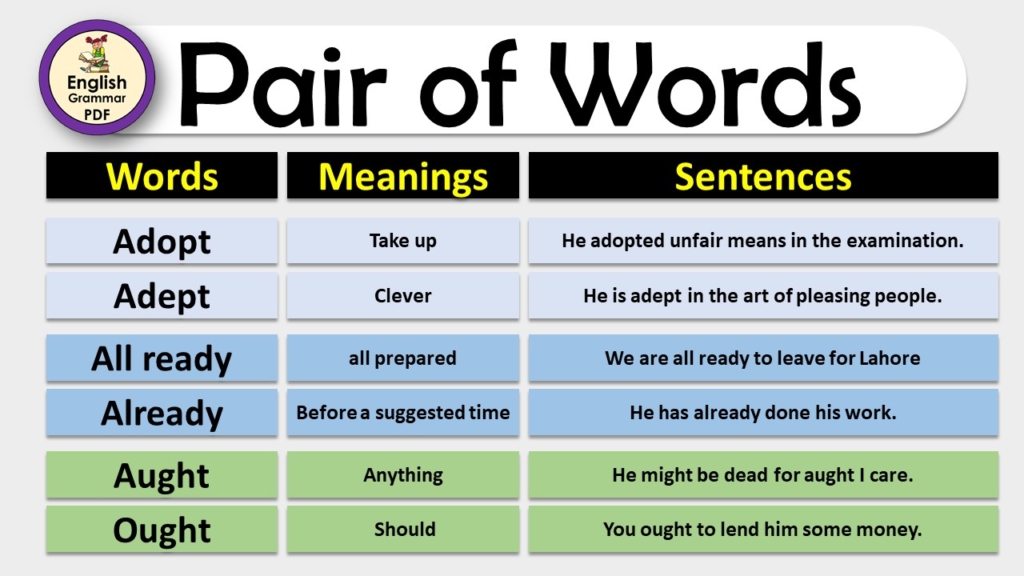In everyday conversations, the words apathy, empathy, and sympathy often arise, especially when discussing our reactions to others’ situations or emotions. Although these terms may seem similar, they each describe very distinct emotional states and our interactions with the feelings of others. Understanding the differences between apathy, empathy, and sympathy can help us better communicate our feelings and improve our relationships.
Differences Between Apathy, Empathy, and Sympathy
- Apathy is a lack of interest or concern about things, especially those that others find important or emotional.
- Empathy involves putting oneself in someone else’s shoes, understanding their feelings and experiences as if they were your own.
- Sympathy is acknowledging another person’s emotional hardships and providing comfort and assurance.
Apathy
Definition and Explanation: Apathy is a state of indifference where an individual does not care about or is not interested in emotional, social, spiritual, philosophical, or physical life and events. The apathetic person lacks a sense of purpose or motivation and does not emotionally respond to things that might typically excite or engage others.
Example Sentences
- Apathy has taken over his work ethic; he no longer shows any interest in meeting deadlines or achieving goals.
- Despite the critical nature of the elections, there was a noticeable apathy among young voters.
- Her apathy towards school resulted in declining grades and missed assignments.
- The team’s apathy was evident in their lackluster performance at the championship game.
- Community events no longer attracted him, showing a deep-seated apathy that worried his family.
- There was a disturbing apathy displayed by the crowd when the accident happened right in front of them.
- His apathy towards his health could lead to serious consequences if he continues to ignore medical advice.
- Even the most exciting projects fail to ignite any interest in her, her apathy is truly profound.
- Apathy in the workplace can lead to a toxic environment where nothing productive is accomplished.
- The documentary aimed to combat apathy towards climate change by showing the dire consequences of inaction.
Empathy
Definition and Explanation: Empathy is the ability to understand and share the feelings of another person. It goes beyond sympathy to actually feeling what someone else is experiencing from within their frame of reference. Empathy involves a deep emotional engagement with another person’s mood and situation.
Example Sentences:
- She showed great empathy for the refugees, working tirelessly to aid their resettlement.
- His ability to listen and express empathy makes him a trusted counselor among his peers.
- The nurse’s empathy towards her patients was evident in her gentle and attentive care.
- Understanding empathy is crucial for psychologists who need to deeply understand their clients’ emotions.
- Teaching children about empathy can lead to a more compassionate and understanding future generation.
- Empathy is what makes her stories so powerful; readers can truly feel the characters’ emotions.
- When you’ve experienced loss yourself, you develop a deeper empathy for others going through similar pain.
- She conveyed empathy in her letter, sharing her own experiences to help her friend feel understood.
- Empathy is a vital skill in international relations, where understanding diverse perspectives is key.
- The ability to express empathy can significantly improve communication in a marriage.
Sympathy
Definition and Explanation: Sympathy involves feelings of pity and sorrow for someone else’s misfortune. Unlike empathy, sympathy does not involve a shared perspective or emotions, but rather a concern and desire to see the person feel better or improve their situation. It often involves an attempt to comfort the person in distress.
Example Sentences:
- He received a lot of sympathy from friends after he broke his leg during the soccer game.
- The community expressed their sympathy by sending flowers and condolences to the bereaved family.
- She could offer little more than sympathy when her sister lost her job unexpectedly.
- There’s a universal sympathy for victims of natural disasters, prompting global humanitarian aid efforts.
- He tried to offer some sympathy to his colleague, who seemed overwhelmed with the project load.
- Sympathy cards lined the mantle, showing how loved the deceased was in the community.
- She appreciated the sympathy her teacher showed when she explained why her homework was late.
- Acts of sympathy can sometimes bridge the gap between estranged family members.
- Many people show sympathy for the homeless during the holidays by donating to shelters.
- After the accident, the whole school showed sympathy for the injured students by organizing a fundraiser.



